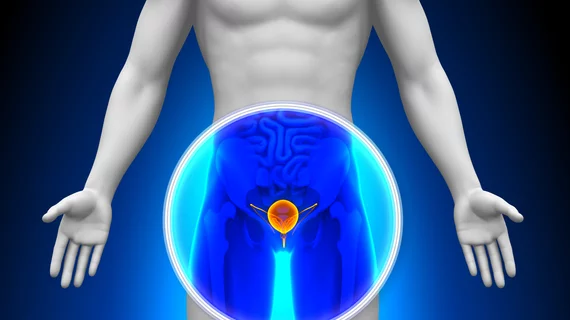Is this imaging technique the future of prostate cancer treatment?
A newer imaging technique, PSMA PET/CT, may be able to identify the location of prostate cancer recurrence better than traditional methods, according to new findings published by The Lancet Oncology.
PSMA PET/CT, or prostate-specific membrane antigen imaging, is not yet approved by the FDA, but researchers have been exploring its potential in recent years. A team from the UCLA Jonsson Comprehensive Cancer Center in Los Angeles compared the performance of PSMA PET/CT with the treatment currently recommended for locating prostate cancer recurrence, 18F-fluciclovine PET/CT.
The study, as detailed in a news release from UCLA, included 50 adult patients who had already undergone a radical prostatectomy, with surgeons removing their prostate gland and surrounding tissue, due to cancer. Each patient received scans with 18F-fluciclovine PET/CT and PSMA PET/CT within 15 days of each other. A team of three independent specialists read each scan with all patient information removed.
Overall, the team found that PSMA PET/CT outperformed 18F-fluciclovine PET/CT, detecting recurrence in 56% of scans compared to just 26%.
“With higher detection rates, PSMA should be the PET tracer of choice when PET-CT imaging is considered for subsequent treatment management decisions in patients with prostate cancer and biochemical recurrence after radical prostatectomy and low PSA concentrations,” wrote Jeremie Calais, MD, department of molecular and medical pharmacology at ULCA, and colleagues.

